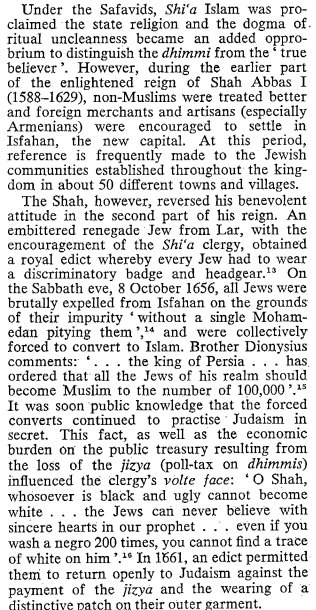A group of ten Jewish men prayed together on the Temple Mount.
From Times of Israel:
Likud politician Moshe Feiglin on Monday violated the unwritten rule that prohibits Jews from practicing religion on the Temple Mount, as he prayed at the holy site.The video makes it clear that this wasn't a few people praying - this was a minyan, as opposed to other times that individuals prayed on the Har HaBayit.
Feiglin, a political hard-liner, is No. 15 on the Likud list for the upcoming elections and head of the Jewish Leadership faction within the right-wing party, a nationalist group defined by many as extreme.
Footage obtained by Channel 10 showed a group of Jews, including the likely future MK, as they prayed on the Temple Mount.
Though there is no law against Jews praying on the Temple Mount, for years both Israeli officials and the Islamic Wakf — the religious group in charge of managing the site — have told Jews not to carry out religious ceremonies or prayers at the site, for fear of violence and a potential outbreak of riots.
When was the last time there was a minyan on the Temple Mount? One might think it was before the destruction of the Second Temple in 70 CE, but there is much evidence that Jews visited the site, off and on, for hundreds of years afterwards through the Byzantine era. In a fascinating paper by Gedalia Meyer and Henoch Messner about the halacha and history of Jews visiting the Temple Mount, we learn:
Following the Arab conquest we have very little information concerning Jewish activity on the Temple Mount. Unlike during Byzantine times, there is no indication that the Muslims prohibited Jewish visitation to the site. The first solid report of what was going on during this time comes in the early 12th century when Jerusalem was already in the hands of the Crusaders. This report is found in a rarely referenced book called Megilas Hamegila by Avraham ben Chiya. He was a rabbi who is believed to have lived in Barcelona and was occasionally quoted by the Abarbanel, among others.The fact that there was an actual, functioning synagogue on the Temple Mount in the 11th century is not well known.
On page 99, he mentions that the Arabs had good relations with the Jews. He says that the Jews were even permitted to have a synagogue on the Temple Mount, which they used on holidays to serve in place of the sacrifices that had been offered in the Beis Hamikdash.
This synagogue was destroyed when the Crusaders came [in 1099], and since that time the Jews were prohibited from entering the Temple Mount area.
Any way you look at it, this visit on Monday was historic.
The Islamic media noted that Feiglin visited, and that he "attempted to perform Jewish and Talmudic rituals," but there has been no note about the prayer quorum. Certainly there have been no riots as Muslims have threatened for years.
(h/t Yerushalimey)
UPDATE: There was a minyan for several days on the Temple Mount when Jerusalem was liberated in 1967. From a letter by Rabbi Shlomo Goren, chief rabbi at the time:
In the framework of the function of the Military Rabbinate, we held organized study and prayer on the Temple Mount -- Shacharit (morning service), Mincha (afternoon service), and Ma'ariv (evening service), and Torah reading on Shabbat, Monday, and Thursday on the Temple Mount Plaza itself, inside the Mugrabi Gate, near our study center. Once, the Waqaf people tried to close the Shevatim Gate, on the northeastern end of the Temple Mount, from a gathering of officers of the Military Rabbinate that was held on the Temple Mount. We broke through the gate and entered. That taught them the Temple Mount is ours officially and practically.
On the 9th of Av, 5727 (1967 CE), I held a Mincha service for a small group on the Temple Mount Plaza across from the steps going up south of the Dome of the Rock, a place that is permissible to enter according to all Halachic authorities. This Mincha service on the 9th of Av on the Temple Mount raised many reactions in the media in Israel and abroad. Jewish writers hostile to religion in the State started incitement against our efforts to renew Jewish prayer on the Temple Mount.
In the midst of deliberations, in both governmental and religious frameworks, about renewing Jewish prayer on the Temple Mount and building a permanent synagogue on the open southern plain, the Minister of Defense told me, to my great surprise, that he decided to pass the auspices and responsibilities for all arrangements on the Temple Mount to the Islamic Waqaf. He ordered me to take the Torah study center of the Military Rabbinate down from the Temple Mount and to remove all officers of the Temple Mount. From then on, according to him, the Military Rabbinate has no responsibility for the arrangements there, and I should stop organizing Jewish prayer on the Temple Mount. I accepted the order with anger and pain, and I told the Minister of Defense that this is likely to bring about a third destruction, since the key to our sovereignty over Judea, Samaria, and Gaza is the Temple Mount.
(h/t Dr. Mike Cohen)

 Elder of Ziyon
Elder of Ziyon





























